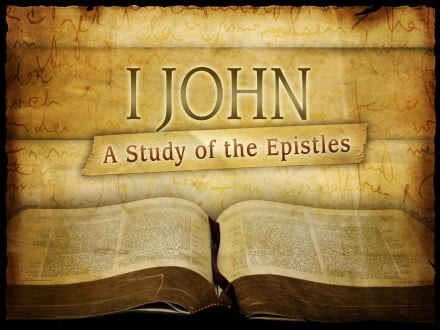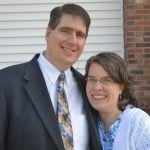⏱️ Estimated Reading Time: 6 min read
I will confess that as I began to look at writing this article, I read the paragraph in view in 1 John 2:7-11, then expanded to the context of chapter two, then expanded to the context of the whole letter, and kept on expanding further to 2 John, the Old Testament, the words of Jesus and began to wonder how to boil this down to focus on just this paragraph. There is a link that runs through John’s letter that connects light with truth, truth with love and love with obedience and obedience with fellowship with the One who is Light. There is also a link with darkness, a darkness that evidences a lack of truth, a lack of love, a lack of obedience, and, consequently, a lack of fellowship with the Light or those in the light. Trying to pull all this together for a short article focused in on our paragraph may be challenging, but, by God’s grace, we’ll learn what we can learn and then pray God’s Spirit might enlighten us further as He guides us into all truth.
The central focus of our paragraph deals with love, which also functions as one of the main emphases of John in his letter. John first lets us know that what he is about to tell us is nothing new; this is an old command. The reference to the old command takes us back to Leviticus 19, where God commanded the people to “love your neighbor as yourself.” A couple things worth noting about the old command: first, the context of this command is in response to evil done against them. The people are told not to take vengeance, not to bear a grudge, but to love their neighbor. Second, the ones doing the evil are their brothers, the people of God. This is an in-house evil that is being done, and the command given is directed at how you respond to a brother who has hurt you. This does not mean that we can take vengeance on those who are outside the people of God. Jesus makes this clear in telling us to love our enemies and pray for those who persecute you (Matt. 5:44). However, John’s context matches the context in Leviticus, that it is friendly fire he has in mind.
So, the command to love our neighbor is old, but then again, it is new because there is a new reality with the coming of Jesus. The darkness that reigned previously has been conquered and is in process of completely fading away. John wants us to know that with the incarnation, there is that already, not yet component of the light vs. darkness battle. Light has overcome darkness, but the final work is not completed just yet. The darkness is fading away, and the light is already shining, as we move closer to the final day and the eternal kingdom is established.
Love, then, is the test that is used to evaluate whether one is a part of the darkness or a part of the light. There is really two parts to this evaluation. First, what we say is not what matters. John tells us that “whoever says he is in the light and hates his brother is still in darkness.” What we say is of little consequence. Many will read the book of John and, rightly so, conclude that this is a good book to go to for the idea of assurance of salvation.
Near the end of the letter, John gives what may be a purpose statement, that those who believe in the name of the Son of God may know that they have eternal life. So, the idea of being certain of salvation is at or near the top of John’s purposes in writing this letter. Several times he brings out the contrast between what is said and what is done, and he always brings it back to what is done as having more weight. So, it is not what we say but what we do.
I have visited many churches over the last several years in my travels. Most churches that I have visited will say “We are a loving church.” I always come away from those conversations hoping that is true, but the true test is not in what they say but how they live it out. In the end, it should not be us saying that we are a loving brother or sister, but that others see it in us and commend that to us. Ultimately, though, it is God that will see whether the truth is in us, whether we are truly loving our brother, and whether we are part of the light or the darkness.
While it does matter what we say, it supremely matters what we do. Whoever loves his brother, whoever hates his brother; those are the true evidences of where we are in terms of light vs. darkness. Anyone can say they love God, are living in fellowship with Him, are in the light, but it is their actions that will be the true barometer of this. If you hate your brother, you are in the darkness. If you love your brother, you are in the light. There is no middle road, no halfway, and definitely no shades of gray. By our fruit, we will be known.
There is a question that comes up in vs. 10 that needs to be addressed before concluding. The ESV has vs. 10 as “Whoever loves his brother abides in the light, and in him, there is no cause for stumbling.” (italics mine) The “in him” comes from the Greek, ev auto which can be translated as “in him” or “in it”, depending on whether the auto is to be taken as a masculine pronoun or neuter pronoun. If it is masculine, the phrase is “in him” then the question becomes as to whether the “him” refers to the brother who loves or the brother who is loved. If it is neuter, the phrase then means “in it”, and the antecedent is the light, that in the light, there is no cause for stumbling.
To me, the latter makes better sense of the context and John’s intent, that while we walk in the light, there is no cause to stumble, simply because we can see. It is like the difference of navigating my bedroom at 5:00 AM trying to find my way to the bathroom vs. finding the bathroom at noon time when the light is on. This also seems to fit another passage by the same author. John 11:9-10 says, “If anyone walks in the day, he does not stumble because he sees the light of this world. But if anyone walks in the night, he stumbles because the light is not in him.” So, it seems to fit with the context that John is referring to the stumble-free possibility that comes from truly living in the light.
It is easy to say we are in the light, but the proof is found not in what we say but what we do. Love for brother flows from living truly in the light of our salvation.




